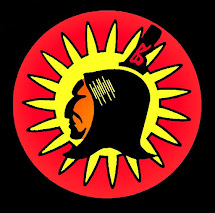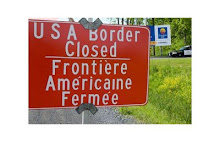Sunday, June 10, 2012
Alright! Time to Call Times Up!
I am absolutely an advocate for diplomacy and meaningful conversations on issues that cause conflict. Real diplomacy requires patience and an acknowledgement that the two parties in a conflict may not have the same priorities or understanding of the problem. Diplomacy is not supposed to be about winners and losers but about mutual respect and coming to a solution that solves the problem, not stamp it out or wait it out.
Back at the beginning of February, I began meeting with the offices of Congressman Brian Higgins and US Senator Kirsten Gillibrand. I brought up a law that they both strongly supported and voted for in their respective houses. The Childrens Health Insurance Reauthorization Act or CHIPRA was widely vaulted as only having the upside of helping children. But in a world where no good deed can go unpunished, someone had to be punished. So the good target was cigarette smokers; those dreaded beings that have single-handedly driven up the cost of health care. The feds funded this act by raising the federal excise tax on tobacco products; a carton of cigarettes was raised $6.16. However hidden in the law was a provision to prevent major manufacturers, wholesalers and retailers from stocking up on large amounts of product in advance of the tax increase for sale after the increase; a floor tax.
Native people and Native lands were never mentioned anywhere in this law. We are not mentioned on either the receiving end or the taking end. So when millions of dollars in floor tax assessments from the US Treasury Department's Alcohol and Tobacco Tax and Trade Bureau (TTB) began showing up to Native retailers and wholesalers last Christmas for product purchased and sold almost three years prior, we were a little surprised.
In my meetings with the Higgins and Gillibrand people, I asked if they had intended to, for the first time in the history of federal intervention on Native businesses, create a scenario where product purchased and in our possession on our lands would be billed by the TTB for additional monies after-the-fact. The staffers of the representatives said they would have to get back to me on that but expressed a clear understanding of what I was asking and a sense that a mistake had been made. And sure enough after consultation with their legislative specialists in DC, they concurred that the over zealousness of the TTB pursuing these funds was, indeed, "an unintended consequence" of an unclear law and that there was no intent to impose this tax on our lands. So my next obvious question was, "Well, what are you going to do about it?". After 5 months it is obvious that there is no intention to do anything.
Even the limpest promise of a letter of support on the issue was never realized. The most ambitious request I made still really required almost no action on the part of Mr. Higgins or Ms. Gillibrand. I simply wanted their offices to facilitate a meeting with the White House Senior Policy Adviser on Native Affairs so the same question could reach the President. This seemed like a great idea when I mentioned it. After all they had to do almost nothing. My thoughts were that because of the discretion that the taxing agencies can show on issues like this, that a simple phone call from the President could make it go away. But that is when the back pedaling started. After hearing nothing back after repeated calls and emails, I was asked how come the Seneca Nation President, Robert Porter wasn't raising these concerns. The staffers now suggested that involvement from he or the SNI council would be necessary for them to facilitate the meeting or write their letter even though they fully acknowledged from Buffalo to DC that this was all a misunderstanding. So 8 Seneca Nation Councilors joined me in the request, many of whom were committed to making the trip to DC to meet with the White House adviser.
Even with meeting this new requirement, neither Brian Higgins nor Kirsten Gillibrand have shown an ounce of integrity on this issue so diplomacy aside, it's time to call them out. It is also time to call Rob Porter out on this issue as well. For it is he who went before the Senate Finance Committee and never once saw fit to address this affront to Native sovereignty as he promoted his own unauthorized agenda. I believe that it was not just Porter's lack of interest on this issue that Higgins and Gillibrand are using as an excuse to do nothing but his encouragement to do just that: nothing.
This is primarily an issue that impacts the private sector in Native communities. Although the US promotes private sector development everywhere on the planet (especially in communist or socialist countries), that's not the case for Native people and Native lands. This is another area where tribal governments and the feds are clearly on the same page but quite a different page than the one Native people are on. Only "tribal" enterprises are encouraged while the private sector is gutted from prospering or expanding. And the unholy marriage between those successful individual businessmen on Native lands and tribal government has only been made more unholy by bedding with the feds.
So Times Up! Let the hard truth begin to flow until real diplomacy can begin to walk back some of these issues.
Back at the beginning of February, I began meeting with the offices of Congressman Brian Higgins and US Senator Kirsten Gillibrand. I brought up a law that they both strongly supported and voted for in their respective houses. The Childrens Health Insurance Reauthorization Act or CHIPRA was widely vaulted as only having the upside of helping children. But in a world where no good deed can go unpunished, someone had to be punished. So the good target was cigarette smokers; those dreaded beings that have single-handedly driven up the cost of health care. The feds funded this act by raising the federal excise tax on tobacco products; a carton of cigarettes was raised $6.16. However hidden in the law was a provision to prevent major manufacturers, wholesalers and retailers from stocking up on large amounts of product in advance of the tax increase for sale after the increase; a floor tax.
Native people and Native lands were never mentioned anywhere in this law. We are not mentioned on either the receiving end or the taking end. So when millions of dollars in floor tax assessments from the US Treasury Department's Alcohol and Tobacco Tax and Trade Bureau (TTB) began showing up to Native retailers and wholesalers last Christmas for product purchased and sold almost three years prior, we were a little surprised.
In my meetings with the Higgins and Gillibrand people, I asked if they had intended to, for the first time in the history of federal intervention on Native businesses, create a scenario where product purchased and in our possession on our lands would be billed by the TTB for additional monies after-the-fact. The staffers of the representatives said they would have to get back to me on that but expressed a clear understanding of what I was asking and a sense that a mistake had been made. And sure enough after consultation with their legislative specialists in DC, they concurred that the over zealousness of the TTB pursuing these funds was, indeed, "an unintended consequence" of an unclear law and that there was no intent to impose this tax on our lands. So my next obvious question was, "Well, what are you going to do about it?". After 5 months it is obvious that there is no intention to do anything.
Even the limpest promise of a letter of support on the issue was never realized. The most ambitious request I made still really required almost no action on the part of Mr. Higgins or Ms. Gillibrand. I simply wanted their offices to facilitate a meeting with the White House Senior Policy Adviser on Native Affairs so the same question could reach the President. This seemed like a great idea when I mentioned it. After all they had to do almost nothing. My thoughts were that because of the discretion that the taxing agencies can show on issues like this, that a simple phone call from the President could make it go away. But that is when the back pedaling started. After hearing nothing back after repeated calls and emails, I was asked how come the Seneca Nation President, Robert Porter wasn't raising these concerns. The staffers now suggested that involvement from he or the SNI council would be necessary for them to facilitate the meeting or write their letter even though they fully acknowledged from Buffalo to DC that this was all a misunderstanding. So 8 Seneca Nation Councilors joined me in the request, many of whom were committed to making the trip to DC to meet with the White House adviser.
Even with meeting this new requirement, neither Brian Higgins nor Kirsten Gillibrand have shown an ounce of integrity on this issue so diplomacy aside, it's time to call them out. It is also time to call Rob Porter out on this issue as well. For it is he who went before the Senate Finance Committee and never once saw fit to address this affront to Native sovereignty as he promoted his own unauthorized agenda. I believe that it was not just Porter's lack of interest on this issue that Higgins and Gillibrand are using as an excuse to do nothing but his encouragement to do just that: nothing.
This is primarily an issue that impacts the private sector in Native communities. Although the US promotes private sector development everywhere on the planet (especially in communist or socialist countries), that's not the case for Native people and Native lands. This is another area where tribal governments and the feds are clearly on the same page but quite a different page than the one Native people are on. Only "tribal" enterprises are encouraged while the private sector is gutted from prospering or expanding. And the unholy marriage between those successful individual businessmen on Native lands and tribal government has only been made more unholy by bedding with the feds.
So Times Up! Let the hard truth begin to flow until real diplomacy can begin to walk back some of these issues.
Subscribe to:
Post Comments (Atom)













![-[]-[]-/\-[]-[]-](https://blogger.googleusercontent.com/img/b/R29vZ2xl/AVvXsEjLoXmKO8PJVQ5pZ2q7GX7nFKw8H2tb28dxt-o10FUBNtOGszWhWoLB7tgjtMgtISpuSxNW3fcDxfuSS2DqojsdjNJ1lVggyUS374PnzsDbOhk4ukvtTunFQcyfkckZeBzcLbri4LDYN_E/s214/29-03-A-voice-from-the-Akw-.jpg)





No comments:
Post a Comment